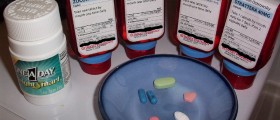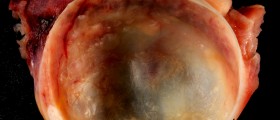
Polycystic Ovarian Disease
Polycystic ovarian syndrome (polycystic ovarian/ovary disease, Stein-Levinthal Syndrome, PCOS) includes the many different symptoms. These include: rare and irregular menstruation, signs of excess male hormones, infertility, hirsuitism, thinning of the hair, acne and other skin problems, tiredness, hypertension and high blood cholesterol and also sleeping issues and mood swings.
Typically, women will have less than 8 cycles per year, prolonged cycles, obesity, polycystic ovaries and excess of testosterone in the blood. The weight might be a serious issue, and most of PCOS patients are advised to lose some weight.
What causes PCOS is still unknown, but there are some studies that show that the genetic might have a role in it. It is estimated that 10% of the female population worldwide has this condition and it is often the cause of infertility.
Keep in mind that some cases of PCOS may pass undiagnosed. In the past, it was considered to be an ovulation mistake with an increase of male sexual hormones (testosterone). The recommended treatment was the surgical procedure to cut out a part of the ovaries. The surgery is now outdated and it wouldn’t resolve the problems with male hormones. Later on, there were contraception pills, which improved the hormonal imbalance. These days, the therapy includes the birth control pills and, when a woman decides that she wants to be pregnant, induced ovulation.
Other problems associated with the PCOS are:
Insulin resistance, which might lead to diabetes Blood vessel’s lining stimulation that could provoke hypertension Cholesterol and liver problems, leading to heart problems Decreased sex hormone binding globulin (SHBG), leading to less free sexual hormonesInsulin resistance makes the body produce even more of this hormone, and then it stimulates other tissues in the organism, which normally don’t respond to it. Ovaries produce more testosterone, which can’t be bound up, due to the decrease of the SHBG and it provokes: acne, hair growth and problems with the menstrual cycle.
Similar Symptoms but Other Diseases
There are also other medical problems that could resemble the symptoms of the PCOS. Overproduction of testosterone is also present in adrenal gland disorders and adrenal cancer. Hyperprolactonemia, hypothyroidism and congenital adrenal hyperplasia might also cause symptoms that look like PCOS. Whatever the cause is, the condition must be properly diagnosed and treated.
The Treatment for PCOS
PCOS patients are frequently tested for blood lipids and diabetes (including the measuring of insulin resistance).
If a woman doesn’t want to get pregnant the good choice are contraceptive pills. They will regulate the cycles, irregular bleedings, uterus cancer and the amount of produced testosterone.
When a woman diagnosed with PCOS wants to get pregnant, doctors usually recommend medications that will induce ovulation (Clomid, or sometimes Netformin). As the additional therapy, some specialist might suggest the use of a diuretic medication, spironolactone. It will compete with testosterone and diminish testosterone's effects, but it has certain side effects.

















Your thoughts on this
Loading...